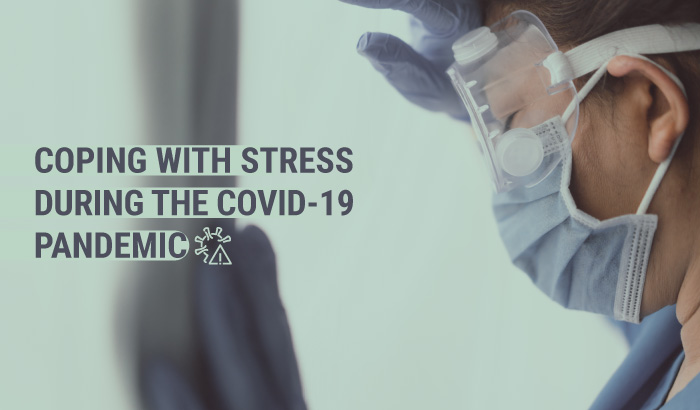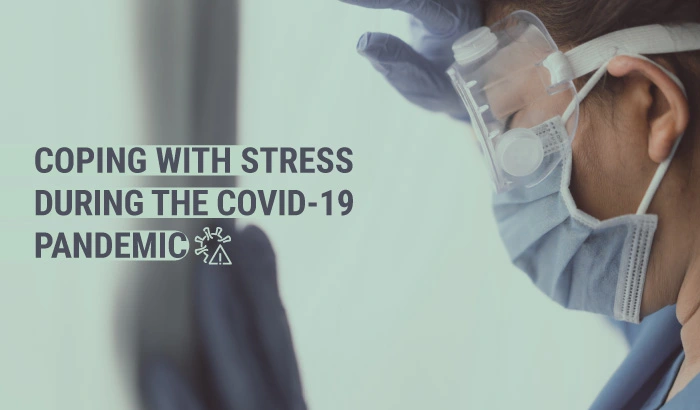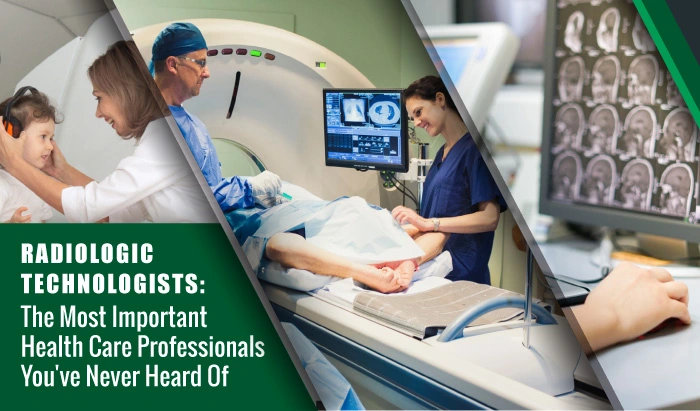Coping with Stress during the COVID-19 Pandemic: Suggestions for Rad Techs



The United States has rung in the new year with surging numbers of coronavirus cases. Hospitals in many states, particularly in the West and South, are overwhelmed by patients in need. The situation is dire and worsening. The Washington Post and Los Angeles Times have recently reported (here and here) that the situation for hospitals in Los Angeles County is so desperate that medical staff and ambulance crews have been instructed to make difficult decisions about who will receive treatment and who will not. Ambulance crews have been told not to transport patients with low chances of survival to hospitals and to ration and conserve oxygen for use only with the most in need. ICUs are at capacity, leaving patients in critical condition to be treated in emergency rooms, in hallways, in whatever space can be made available. Field hospitals are being reopened. Healthcare systems and healthcare workers are in a state of crisis. And the crisis is projected to worsen throughout the month of January.
And this comes on the heels of nearly a full year of stressful working conditions that have taxed healthcare workers to an unimaginable degree. According to recent research surveys, healthcare workers are burdened and plagued by staffing shortages, crisis-level volumes of patients, long hours, and the constant fear of contracting and spreading the virus to loved ones. And that on top of the stress of daily living and family obligations in the midst of a pandemic.
Managing and coping with stress is now a critical skill for healthcare workers—particularly for radiologic technologists, we would argue. Radiologic technologists are among the groups of firstline healthcare workers at highest risk during the pandemic. (If you haven’t read our previous article on how radiologic technologists are serving at the frontlines of the COVID-19 crisis, check it out here.) The physical risks, however, are just one aspect of the risk to rad techs. It is equally important for rad techs to be aware of and to protect themselves from the psychological and emotional effects of pandemic-related stress.

Coping With Pandemic-Related Stress
As this pandemic will continue on for some time, with no clear end in sight, it is important for all of us rad techs to learn how to recognize the signs of stress and manage the symptoms. Developing this as a critical skill can help you ensure your own well-being, help you continue to provide quality care for patients while you’re on the job, and help you maintain happy and healthy relationships with loved ones outside of work.
Below are some coping strategies and techniques to manage pandemic-related stress to ensure that you are able to continue fighting the good fight and saving lives. It takes work to consistently put these techniques into practice, so aim for progress, not perfection.
Recognizing the Symptoms of Stress
- Feelings of uncertainty, nervousness, or anxiousness
- Irritability and/or anger
- Finding it difficult to be motivated
- Feelings of being overwhelmed or burned out
- Sadness or depression
- Difficulty sleeping
- Difficult concentrating
- Fatigue
- Feelings of helplessness and powerlessness

Ways to Manage Stress
Maintaining a Positive Attitude and Realistic Outlook
- Remind yourself that these are unusual times for everyone, and that no one can expect more of you than to do your best with the situation and resources you’ve been given
- Actively remind yourself to take on one issue at a time. This will help you keep a calm(er) demeanor that will ultimately benefit you and your patients
- Practice recognizing when you are having negative thoughts and challenge those with positive alternatives
- Talk about stressors and challenges and share in developing solutions and coping strategies with colleagues and supervisors
- Be sure you and your colleagues know what support services are available to you at work
Take A Break
It is important for you to take care of yourself while you’re on the job in order for you to provide care for patients. Research shows that workers who don’t take breaks are less efficient and more prone to making errors and to experiencing stress.
- Take your breaks during your shift. Breaks offer you a chance to disengage for a short period and recharge. Stretch, call or message a friend, family member, or colleague for support and encouragement, grab a healthy snack, maybe show off your cute new badge reel to a colleague
- Don’t skip your lunch break. Eat a healthy meal and hydrate
- If possible, use your lunch break to take a walk or engage in light exercise, sit in a quiet place and listen to music, practice breathing exercises, or meditate
- Remind yourself that you should not feel guilty about taking short breaks. Have others remind you, if need be. Breaks are necessary to reduce stress and avoid burnout so you can continue to deliver quality care to patients
- Use break times to reflect on the struggles of the day with colleagues and celebrate those that you overcame with determination, your clinical experience and expertise, or empathy and compassion

Deliberately Disconnect from News
- Try to limit your exposure to pandemic news and media to twice a day and to only two or three specific sources
- Remind yourself that research has shown that repeated exposure to visuals and news of traumatic events can cause symptoms of PTSD
Deliberately Connect with People You Love
Human connection is a critical part of human health. Research has shown that people with healthy, robust relationships have increased emotional, physical, and mental health. The effects of healthy human connection include lower rates of anxiety, improved mood and self-esteem, and positive cycles of empathy and support between you and your loved ones.
In a time of physical distancing, it is still possible to maintain relationships and stay connected. Research shows that our sense of connection to others is internal, a sense that we are still connected to those we care about, even if we haven’t seen them. This means that you can help maintain your well-being, even with physical distancing measures.
- Using text, phone calls, or video calls, make time to connect with people you love and maintain your relationships
- Set dates, use reminders, and be proactive about checking in on friends and family. It can be easy to lose touch if you aren’t proactive
- Remember, your friends and family may also need you. They may want to relay their fears and anxieties to you. Listen with that empathetic ear without taking on their fear and anxiety. Being empathetic leads others to greater trust and empathy for you
- Try out watch-parties, digital book clubs, group video chats, and others. There has been an explosion of online tools to help people stay in touch with family and friends during the pandemic

Make Time for the Things You Enjoy
- Carve out time for you and the things that make you happy. Intentionally building a routine that sets aside time for things that you enjoy can help you relax, unwind, and reduce anxiety and stress. In fact, research has shown a link between engaging in enjoyable activities and improved physical and psychological well-being
- Try to avoid the pressure to “be productive” with your leisure time. This may cause stress and feelings of disappointment and failure. Do things you enjoy for the sake of enjoyment to reap the physical and psychological benefits
Take Care of Your Physical Well-Being
- Be proactive about getting a good night’s sleep. Sleep is important for your health. It reduces stress, improves mood and brain function, and boosts your immune system. The University of Chicago offers a great list of practical tips for improving your sleep habits during these trying times
- Beware of excessive use of alcohol and/or other substances. If you think you may be abusing substances, seek help. The Substance Abuse and Mental Health Services Administration (SAMHSA) can help you find support and treatment near you
- Exercise. The health benefits of exercise are well-known, well-documented, and include reduction of anxiety and depression, improvement of mood and sleep, and physical health, all important factors in coping with the effects of stress during the pandemic
- Spend time in nature. Contact with nature, even in small doses, has been shown to have a host of health benefits, physical and psychological. If you have access to green space, try to make time to get outdoors, even for as little as 20 minutes a day. Be sure to observe social distancing guidelines and avoid areas frequently touched by others (e.g., benches, swings and slides at playgrounds or in parks)
- Eat healthy meals. This can be difficult in normal times, and in stressful situations such as a pandemic, many people stress-eat or aim for quick, comforting food choices
The University of California, San Francisco’s Weill Institute for Neurosciences provides an in-depth guide to emotional well-being and coping with stress during the pandemic, if you want more information and tips on how to care for yourself during this time. You can check out their guide here.
We know that these are trying times, especially for healthcare workers on the frontlines of the pandemic. You are charged with caring for the maybe-infected, the probably-infected, the definitely-infected, for your friends, and your family. It is only too easy to forget to take care of yourself. The best way for you to continue to be the superheroes on the frontlines of this pandemic is to be sure you are routinely and consistently taking care of yourself. Stay strong, rad family, and stay healthy.


